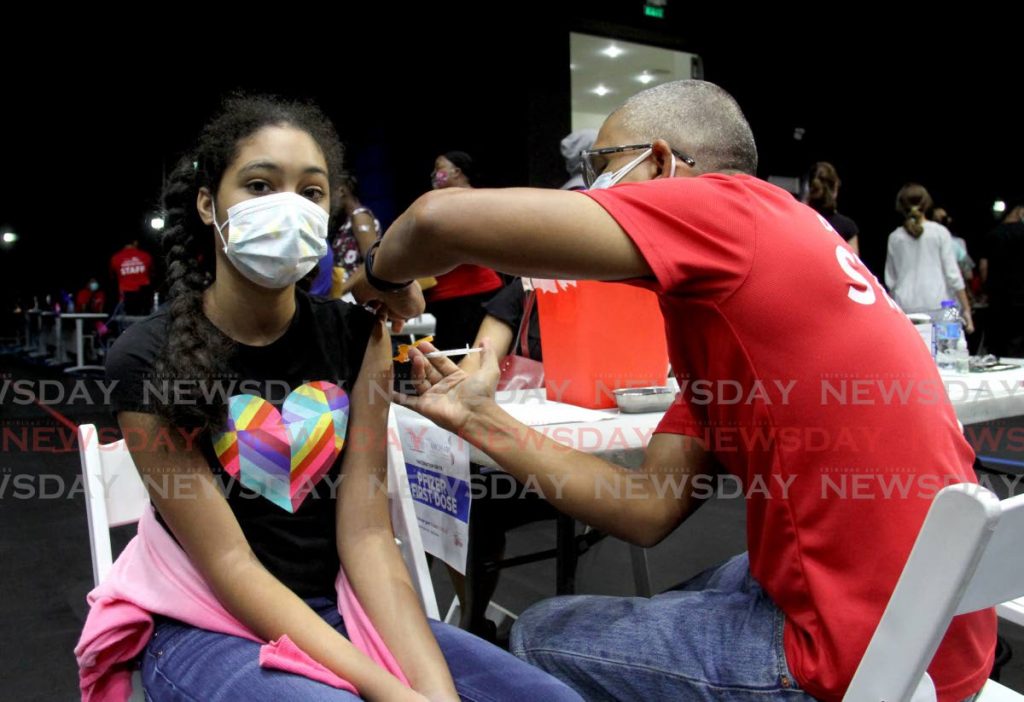Protecting our children

The government’s decision to direct the newly arrived Pfizer vaccines to children is excellent news. TT received 305,000 doses on Thursday, a gift of the US government.
Pfizer is the only brand approved for use in children ages 12 and older, and the Prime Minister’s insistence on making them the priority recipients of those doses underlines his understanding of the threat that covid19 poses to school-age children. At Saturday’s press conference, principal medical officer Dr Maryam Abdool-Richards noted there are three children among the 49 severely ill patients in the parallel health care system.
In the face of increased delta variant infection, there are surging positive tests among children globally. As many as 20 per cent of new covid19 cases in the US in the last week of July are children, who have just returned to school there.
Children’s resilience was considered a factor in resisting covid19 in the early stages of the pandemic, but now parents have an option to protect children from a virus that poses a growing danger to them. The government is keen to get secondary schools back to in-person teaching, and that extra protection will be critical.
The massive hit that countries have faced over July with the spread of the delta variant is a start warning for TT. After a dip in numbers six weeks ago, confirmed cases are on the rise globally, from a low of 2.5 million in mid-June to 4.3 million in early August.
If secondary schools reopen in September – a phased process to begin with fifth- and sixth-form students – there will be the risk of creating incubators to spread the virus unless there is comprehensive vaccination. Even secondary schoolchildren are going to be prone “in the enthusiasms of long delayed social interaction” to be careless or forgetful about the rules of social distancing, masking and frequent handwashing.
The Prime Minister offered an important reminder on Saturday about many diseases that have largely been forgotten because of mandatory, early vaccination. Potentially deadly and damaging diseases like measles, diphtheria, polio, influenza, rubella and hepatitis were brought under control through global vaccination regimes. The average person doesn’t know what’s in those vaccines either, but we do know the protection is real.
At a virtual news conference on Thursday, PAHO’s Dr Erica Wheeler pointed out that WHO-approved covid19 vaccines are not trial or experimental treatments, having undergone rigorous testing. These vaccines – and the speed of their development – have also benefited from advances in modern medical science and the experience of recent viruses like SARS and MERS. That’s cause for gratitude, not suspicion.
But the Prime Minister’s most compelling argument for getting children vaccinated is the responsibility of a parent to protect their child.
For an adult with the responsibility for a child’s life, there should be no hesitation in deciding to approve vaccination.


Comments
"Protecting our children"